Description
ABSTRACT
An Examination of Neighbouring Rights in Nigeria
Regina Onwumere*
Intellectual property law has proved to be a possible tool for the transmission and management of traditional cultural expressions and cultural heritage; protecting it from unauthorised use, reproduction, misappropriation and other forms of dishonest exploitation. “Neighbouring Rights” is one of those terms that can cause a lot of confusion due to the background of the name itself. It is often confused with relating to payments from neighbouring countries, when in fact the explanation is far more basic1 – these are generally, rights of individuals who assist intellectual creators (like musicians) to communicate their message and to disseminate their works to the public.There are basically two neighbouring rights statutorily recognised in Nigeria, these are the performance rights and rights to the expression of folklore. These are two interesting focuses to be discussed in details. The importance of the protection of neighbouring rights lie in its value as a framework for safeguarding cultural rights from abusive exploitation, particularly, the expression of folklores. The research is aimed at enlightening the readers to understand the concept of neighbouring right, the institutional framework and the modalities of its enforcement in Nigeria.
Keywords: Neighbouring rights, Cultural rights, Performance Rights, Folklore Expression, Copyright.
INTRODUCTION
One cannot sufficiently discuss related or neighbouring rights without recourse to copyright, which is in fact, the mother of neighbouring rights.
The Copyright Act does not define the term “Copyright”, but describes works which are eligible for copyright protection. These include – literary work, artistic work, musical work and cinematograph film, sound recording and broadcast.
Having classified the various types of “work” that can use the nomenclature ‘copyright’, the Copyright Act, nonetheless went on to state that a literary or artistic work shall not be eligible for copyright unless:
- Sufficient effort has been expended on making the work to give it an original character; and
- The work has been fixed in any definite medium of expression now known or later to be developed, from which it can be perceived, reproduced or the otherwise communicated either directly or with the aid of any machine or device.2
* LL.B, BL. Counsel, Aluko and Oyebode.
- Royalty Exchange, ‘What are Neighbouring Rights?’ accessed 28 March 2018.
- Copyright Act, Cap. C28, Laws of the Federation of Nigeria 2004, (herein referred to as ‘The Act’); ‘The Act’, s. 1(2); F. O. Babafemi, Intellectual Property: The Law and Practice of Copyright, Trade Marks, Patents and Industrial Designs in Nigeria (1st edn., Justinian Books Limited 2007) 10.

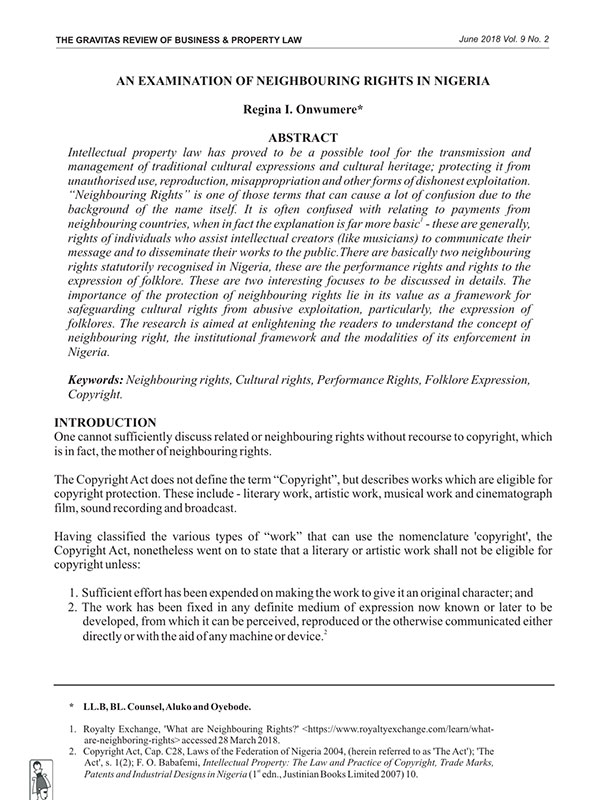
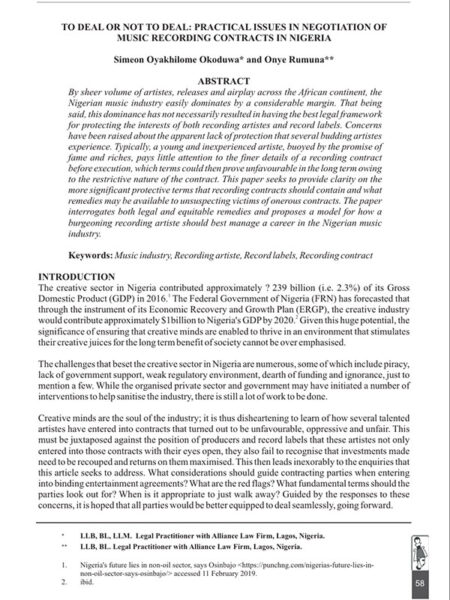
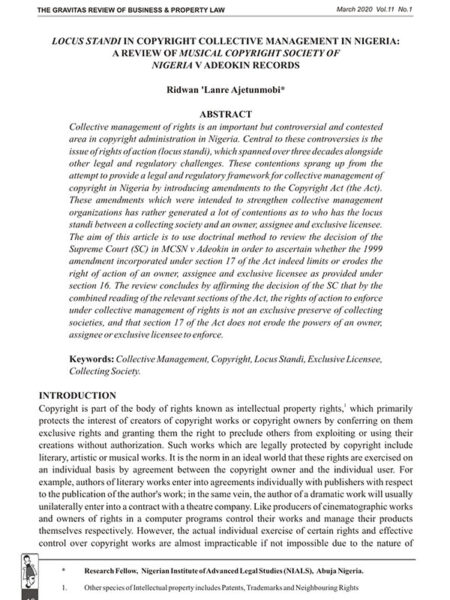
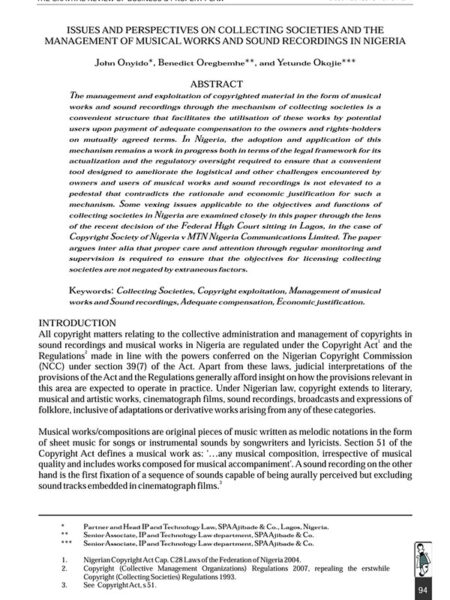
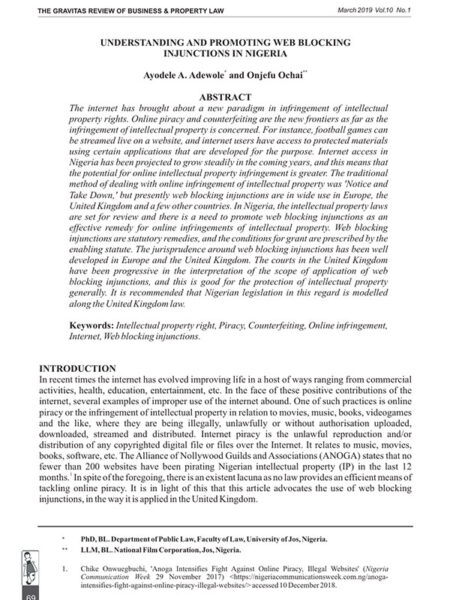


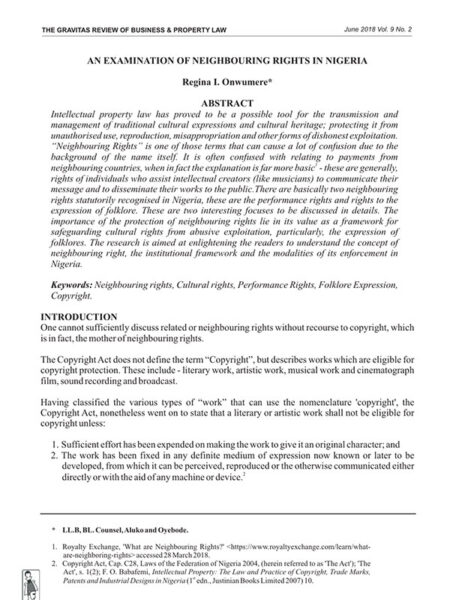
Reviews
There are no reviews yet.